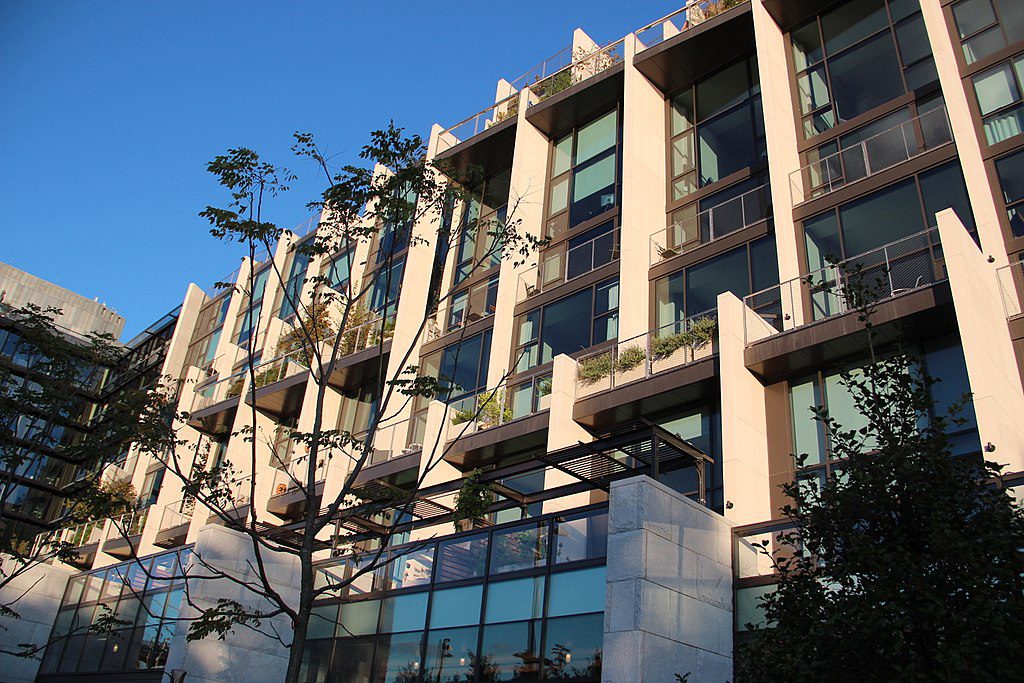Skift Take
It's nearly time for opportunistic investors like Starwood Capital's Barry Sternlicht to swoop in on distressed hotel assets, but they'd better have the pockets to stomach at least another year of no returns on investment.
The economic fallout from a global health crisis can amount to a huge opportunity for investors with billions of dollars ready to deploy on distressed assets — investors like Starwood Capital Group CEO Barry Sternlicht.
That’s because hotel owners battling months of record low occupancy rates and uncertain travel demand are poised to default on their loans in coming months. While current owners would lose out under such a scenario, where a bank takes over the property, investors and major hotel brands are expected to swoop in and ultimately benefit.
While noting his “empathy hat is filled to the rim,” Sternlicht was clearly elated by the growth opportunities that lie ahead for Starwood Capital-affiliated brands like 1 Hotels and Treehouse Hotels.
“As an investor, I’m really kind of tickled to death … There’s going to be so much distress,” he said Monday at the Saudi Arabian Ministry of Tourism’s Future Hospitality Summit. “I think there will be tremendous opportunity for investors, but your timing is going to be critical.”
Starwood Capital is scheduled to close at the end of the month on $6 billion of a $7.5 billion fund — ammunition Sternlicht said would go toward buying distressed assets that could fuel growth of hotel brands under his company’s SH Hotels & Resorts division.
The growth strategy mimics one the investor used previously with W Hotels, a brand now owned by Marriott following its $13 billion acquisition of Starwood Hotels & Resorts in 2016. Sternlicht built up the W Hotel portfolio by acquiring independent hotels in markets like Chicago, Los Angeles, and New Orleans and converting those into the W brand.
He’s now on a similar hunt for “raw material” in major cities around the world like Rome, Madrid, and Berlin to rebrand properties. As much as half of New York City’s hotel supply could close due to financial woes, Sternlicht said.
But seven months into the pandemic, it is still a waiting game.
“We’re a little early, and most owners are not willing to part with their assets right now,” Sternlicht said.
He is also considering a bridge loan program where owners would keep their distressed assets, but Starwood Capital would provide financing to get to the other side of the pandemic. These would likely be in the $10 million to $30 million range, but it would be a costly endeavor for owners seeking to make a deal.
“That money is going to be expensive, basically double-digit yields, because you’re basically quasi-equity,” Sternlicht said. “You’re not the debt.”
Like many in the hotel industry, Sternlicht doesn’t expect to see many instances of banks fully taking over long-term ownership of hotel assets during this downturn. It would still cost the bank money to own the hotel during continued periods of low occupancy. Instead, banks will likely quickly offer up hotel notes to investors at discounted rates.
Starwood has experience with these transactions, buying up a distressed UK hotel portfolio from two banks between early 2013 and early 2014. Starwood renamed the portfolio the Principal Hotel Co. and sold it to the French lodging trust Foncière des Régions in 2018 for $1.1 billion.
But Sternlicht cautioned there is still trouble ahead before any returns come through on a distressed investment.
“I can’t emphasize enough how important it is when you go in, especially if we have a second wave, you’re going to have no cash flows or you’re going to have negative cash flows the first year or so,” he said. “My base case is we’re going to have a vaccine. Travel resumes third quarter [of 2021] to some level of normalcy. The assets will recover at different paces, and you have to model it out.”
No China Shift
Starwood Capital operates a hotel partnership in China with Shimao Property. While China leads the world in a hotel recovery from the pandemic, Sternlicht doesn’t see that as reason to accelerate any growth plan there.
“It’s not my comfort zone, and I don’t really know how to balance the [internal rate of returns],” he said. “The issue in China has been supply.”
Starwood will continue to operate through Shimao, but Sternlicht doesn’t envision extensively building-up hotel supply in China due to divergent real estate investment philosophies. China builds supply with a longer-term demand timeline compared to markets like the U.S.
“They will build in advance of the need. They’re on a 100-year [internal rate of return], and we’re on more of a five-year [internal rate of return],” Sternlicht said. “It’s not a target for us, and we’re not ready to be adventurous.”
Caution on Conversions and Construction
Most of the hotel industry’s pandemic thinking is bigger will be better coming out of the crisis. Hotel owners and investors will want to affiliate with a major brand, as cautious travelers will initially favor booking a stay at a familiar type of property.
But Sternlicht wants to debunk that theory.
“This is not the era of big brands right now,” he said. “This is about individualism, identification, and a sense of belongingness.”
Hotel industry disruption grew from entities such as Airbnb seizing market share in major cities because travelers grew weary of big brands, the thinking goes. Crafting a distinct brand identity on a smaller scale will be crucial to stave off further disruption during an uncertain recovery timeline.
“If you do a really good job at the asset level, you will do a good job at defending against the predator, which is Airbnb,” Sternlicht said. “Airbnb in these urban markets are a viable alternative. Amazon hit retail, and Airbnb hit hotels.”
Taking on a big brand affiliation is also a costly endeavor. The process of changing brand flags, known as a conversion, is one all the major hotel companies like Marriott and Wyndham see as a growth driver during a climate when banks will be less willing to issue new construction loans.
But conversions still take a lot of money, Sternlicht said.
“If you own a Courtyard and it is number one in its [competitive] set, they’ll ask you to spend $7 million when it rebrands, and none of that money has been worthwhile,” he added. “It’s like throwing money in the ocean.”
Hotel brands claim these property improvement plans are about adhering to brand standards and gaining market share. Starwood Capital spent $250 million on property improvement plans on a portfolio, and Sternlicht claims the company didn’t gain any market share following the investment.
“Those [property improvement plans] are not tied to guest satisfaction scores. They’re tied to the ego of the new brand and the fact they want you to add a new alarm clock and new bed,” he said. “It’s a tax on new owners of those hotels, and there’s no reason to spend the money.”
The investor also welcomed the downturn for finally slowing down the pace of construction in what he sees as an overbuilt global hotel sector. While New York City was expected to lose as many as 25,000 hotel rooms from the pandemic, another 21,000 rooms were still in various stages of development at the end of 2019, according to NYC & Co.
But signs point to a construction slowdown across the industry, as developers and their financial backers pull back on pushing projects forward in a travel climate with an uncertain demand future.
“The U.S. and much of the world is overbuilt, certainly overbuilt for a pandemic it didn’t see happening,” Sternlicht said. “I think we’re going to finish the construction cycle we started pre-pandemic, and then I think — please the Lord — we’ll halt and let demand catch up to the inventory.”
Have a confidential tip for Skift? Get in touch
Tags: Barry Sternlicht, coronavirus, coronavirus recovery, investors, starwood capital
Photo credit: Starwood Capital Group CEO Barry Sternlicht sees the economic downturn spurred by the coronavirus pandemic as a growth opportunity for his brands, including 1 Hotels. Pictured is 1 Hotel Brooklyn Bridge. Thomson200 / Wikimedia

